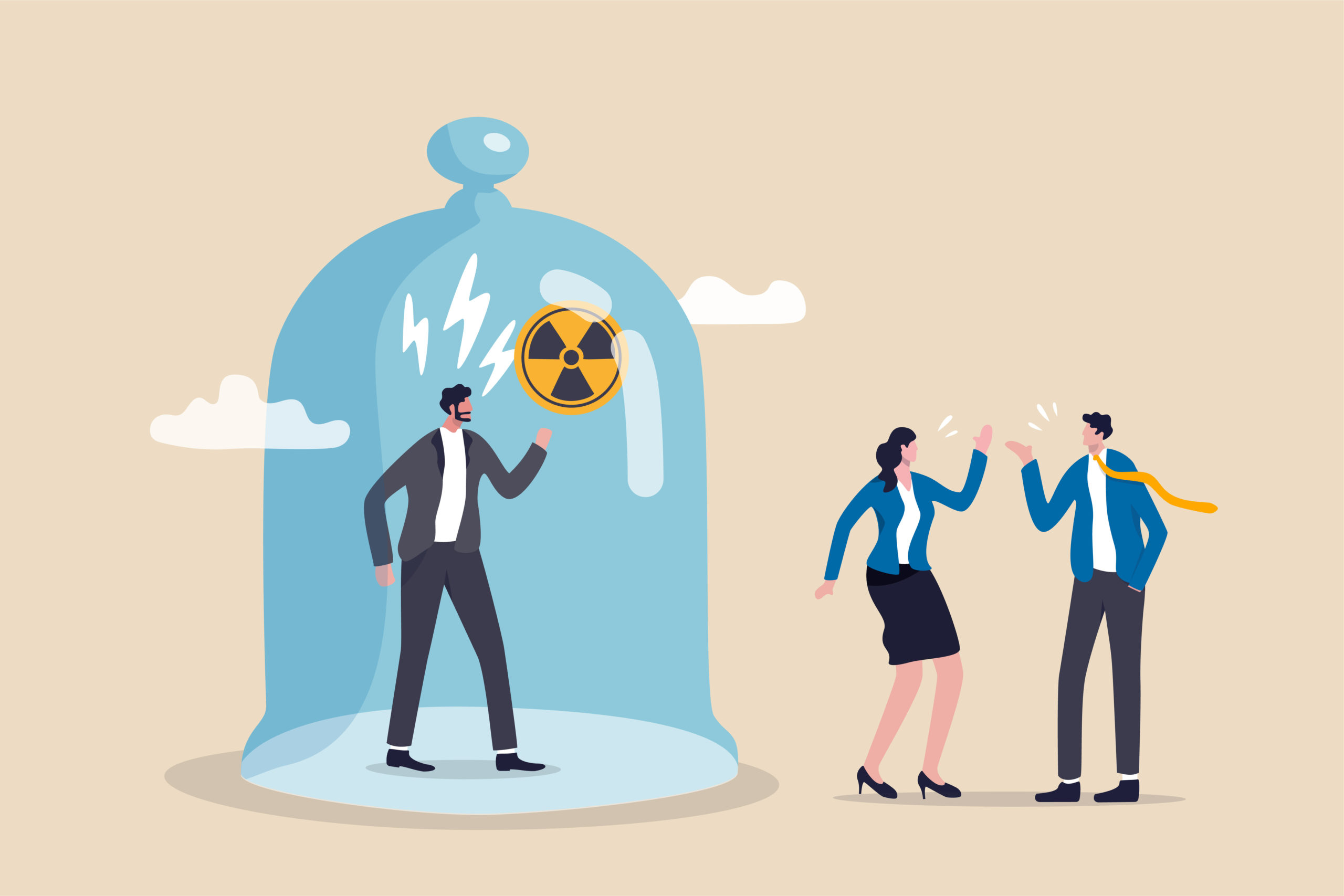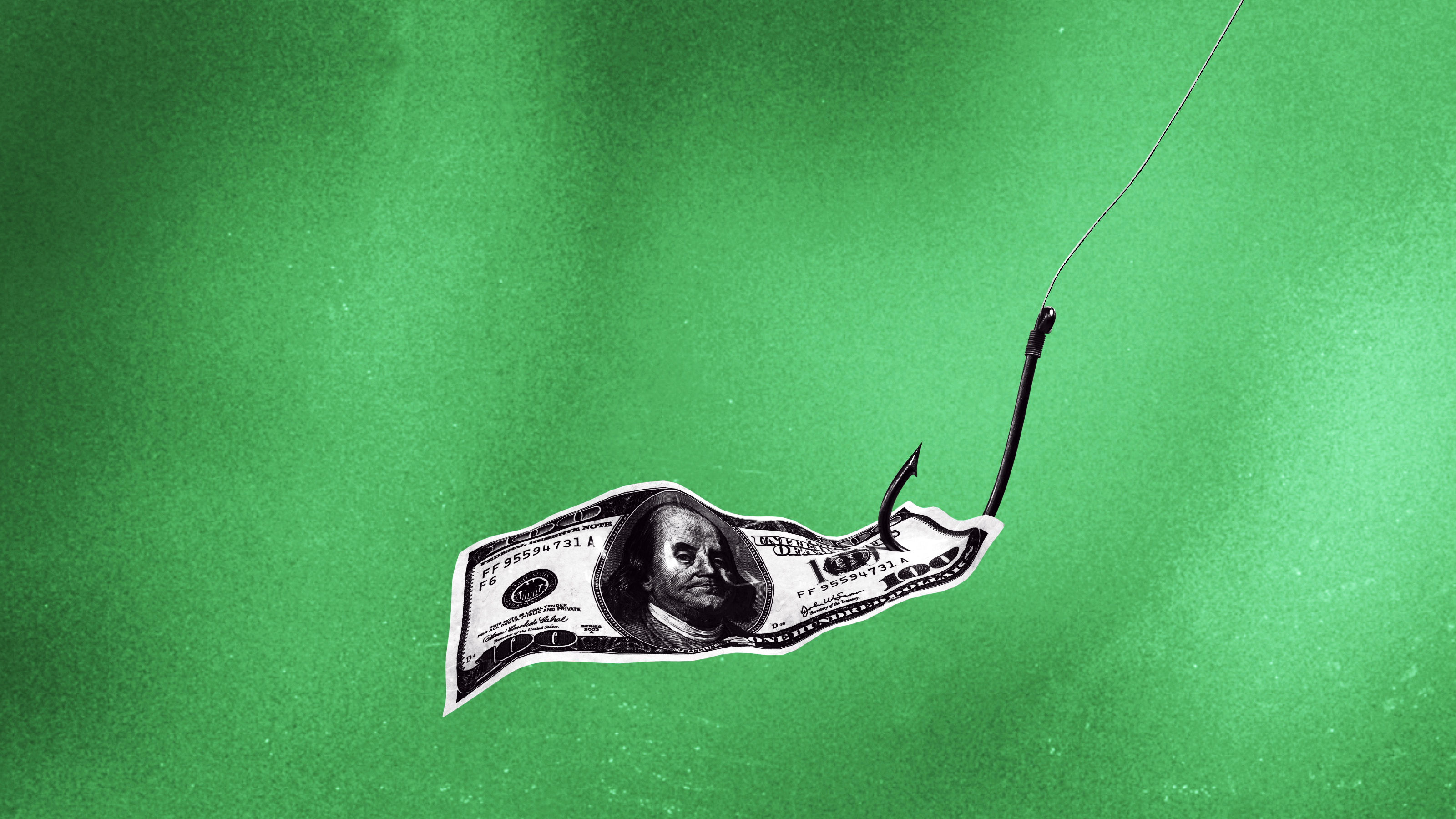Why gaining power turns you into an actual Cookie Monster

- When people gain power, it’s often assumed that they will care for and share with those in their stead.
- However, power inhibits people’s empathy networks making them ruder, less ethical, and more self-serving.
- Through self-awareness, generosity, and community-oriented goals, we have a better chance of short-circuiting power’s corruptive influence.
Humans are a social species whose evolutionary success has been fueled by the ability to work together. Through collaboration, we’ve hunted game exponentially larger than us, expanded into every environmental niche, kick-started a technological revolution, and even landed a man on the moon — all within 200,000 years.
While those accomplishments are shared by all of humanity, the windfall has not. That’s because we didn’t evolve to become an egalitarian species but a hierarchical one. Why is that?
According to ethnographer and leadership consultant Simon Sinek, leadership — and by extension status and power — is a trade-off. The tribe asks leaders to protect them, ensure everyone gets their share, and be the first to sacrifice themselves for the good of all. In exchange, the tribe defers to the leader’s decisions and provides him or her the lion’s share of resources. In the distant past, that would be more meat, mates, and better living for those in charge. Today, well, not much has changed in that regard.
“That’s the deal. That’s the anthropological definition of leadership,” Sinek said in an interview. “It is always balanced. The perks of leadership are not free. They come at the cost of self-interest. They come at the cost of taking care of those in our charge.”
With that said, Sinek warns that this trade-off comes with an important caveat. Namely, some leaders don’t hold up their end of the bargain. Actually, the problem runs psychologically deeper than the occasional wayward leader.
We desire leaders who are gregarious and live according to a code of virtue. But even if we find someone who is fair, caring, and collaborative, once we assign them power, something changes. They become more likely to engage in rude, selfish, and unethical behaviors that enrich them at the expense of others. Psychologist Dacher Keltner calls this the “power paradox,” and he’s studied it in settings as diverse as college campuses, sports teams, workplaces, and, of course, the United States Congress.
But it’s not just CEOs, world leaders, and sports stars who fall prey to power’s influence. Give someone (anyone!) a little bit of power, and they become more likely to take more from the communal cookie jar.
I’d give you a cookie (but I ate it)
We tend to think of power as being the reward for climbing to the upper rungs of the social ladder, and it is, but it’s also far broader than that. Psychologists define power simply as an individual’s ability to influence others even if they try to resist. Keltner narrows that a bit. He considers power to be a person’s ability to modify others’ states by providing or withholding resources or doling out punishments. Importantly, those resources don’t have to be material. They can include knowledge, attention, or affection.
Whichever definition you prefer, both signal that a discussion of power isn’t only limited to politicians, organizational leaders, and the fabulously well-to-do. Anyone can wield power in the right social context — as Keltner’s so-called “Cookie Monster” study suggests.
We rise in power and make a difference in the world due to what is best about human nature, but we fall from power due to what is worst.
– Dacher Keltner
Here’s the setup: Keltner and his then-graduate student Dan Ward invited same-sex groups to draft policy recommendations on social issues. One member of the group was randomly empowered to award points to the other two based on their performance. After 30 minutes of, frankly, boring work, an experimenter would bring in a plate of five cookies for refreshment. This allowed two people to take an extra cookie while leaving the third without.
Keltner and Ward found that empowered individuals were not only more likely to take a second cookie but also to eat their cookies more messily. They ate with their mouths open, lips smacking, and with less worry over getting crumbs on their shirts. (Hence the study’s nickname referencing Sesame Street’s beloved destroyer of snacks.)
Another study published in Social Justice Research attempted to replicate Keltner and Ward’s results. This time, the researchers only offered enough cookies for each participant to take one, and, in a twist, offered reasons for the assigned roles. Depending on the group, they told the empowered participant that they were assigned their position for a legitimate reason (say, skill), an illegitimate reason (favoritism), or for no reason.
As before, the empowered participants snatched up a second cookie more often. Interestingly, legitimized leaders or those given no reason for their role took an extra cookie more often. Those who felt their power was illegitimate ate, on average, as many cookies as everyone else.
The power to change hearts and minds
The Cookie Monster study is hardly alone in suggesting that power changes one’s social and ethical behaviors. In a series of studies published in the Proceedings of the National Academy of Sciences, Keltner and psychologist Paul Piff explored how people of higher socioeconomic status behaved differently than those of lower status in various situations.
In their lab experiments, those who identified as upper-class were found to be more likely to:
- Endorse unethical behavior.
- Lie during negotiations.
- Cheat to increase their chances of winning.
- And take candy from a candy jar, even when told the candy was for the children in the lab next door.
Outside the lab, the researchers observed drivers at an intersection to see how they acted around other vehicles and pedestrians. They found that cars typically associated with high status (your Mercedes or BMWs) were more likely to cut off other vehicles and speed by pedestrians at a crosswalk than a Ford Taurus or Pontiac Grand Am.

Psychologists hypothesize that the reason for such antisocial behaviors is that power alters how we navigate and experience our social worlds. It makes us more self-interested and goal-oriented, which can be a good thing (as we’ll see). But in turn, it also makes us less caring, empathic, and considerate of risks — even when the fallout of a bad bet may affect others.
In an analogy, Keltner noted how people who receive damage to their brain’s frontal lobes — an area associated with empathy, self-control, and personality — become ruder, more impulsive, and more disconnected from others. “Our lab studies find that if you give people a little bit of power, they kind of look like those brain trauma patients,” Keltner said on the University of California’s YouTube channel. “When you feel powerful, you lose touch with other people,”
While power doesn’t literally cause brain damage, research does suggest it changes how our brains operate in social situations. One study monitored participants’ brain responses with an EEG as they viewed images of either neutral or distressing facial expressions. It discovered that participants who identified as upper-class had a diminished response to others’ pain despite self-reporting higher levels of empathy. Another study found that such participants showed less neural activity in an fMRI machine when trying to “mentalize” someone’s emotions.
“These findings suggest that iconic abuses of power — Jeffrey Skilling’s fraudulent accounting at Enron, Tyco CEO Dennis Kozlowski’s illegal bonuses, Silvio Berlusconi’s bunga bunga parties, Leona Helmsley’s tax evasion — are extreme examples of the kinds of misbehavior to which all leaders, at any level, are susceptible,” Keltner wrote for the Harvard Business Review.
Lord Acton was right
At this point, the data seem to trend in the direction of Lord Acton’s aphorism: “Power corrupts, and absolute power corrupts absolutely.” In fact, Acton wrote that “power tends to corrupt,” which is an important distinction for both his meaning and the scientific literature on power.
For starters, the research into power is relatively new and has its limits. Many of these studies have low sample sizes, and it is challenging to control for life’s many variables when it comes to things like power. Attempts to prime feelings of power in a lab, for example, may not lead to the same subjective feelings of empowerment experienced by the powerful in everyday life. Such qualia are difficult to adequately gauge in a lab or through questionnaires.
Similarly, the associated markers of power and socioeconomic status used in some studies can confound results. When it comes to cars, it’s entirely possible that how aggressively or selfishly one drives stems as much from culture as status in that culture. A study looking to replicate those results in European cities found no connection between car make and driving behavior; meanwhile, one could easily imagine a similar study in New York City showing bad driving behavior up and down the social ladder. (For the record, the original took place in Berkeley, California).
Second, we’ve been ignoring the other half of the power coin: Its ability to elevate virtuous traits as well. Research has shown that power can help people become more confident, optimistic, and creative. It can also help people better control their attention and take risks — which can be a positive trait when the risks in question are necessary and measured.
Even the Stanford Prison Experiment — an infamous experiment of dubious scientific value — shows the relationship between power and corruption to not be so clear-cut. It attempted to simulate a prison environment and examine how power dynamics changed behavior among the “guard” and “prisoner” participants. However, as psychologist Scott Barry Kaufman notes, not every guard became abusively drunk with histrionic power. Some were actively kind to the prisoners, even going on errands for them and fulfilling helpful requests.
“Put to good use, power can have an incredibly positive effect on people. There are so many compassionate teachers, bosses, politicians, humanitarians, and others who wield power, who genuinely want to make the world a better place,” Kaufman writes in Greater Good Magazine.

Safeguarding against the corruptive power of power
Despite years of researching how power can affect our behavior for the worse, Keltner recognizes its positive aspects, too. He writes: “The power paradox requires that we be ever vigilant against the corruptive influences of power and its ability to distort the way we see ourselves and treat others. But this paradox also makes clear how important it is to challenge myths about power, which persuade us to choose the wrong kinds of leaders and to tolerate gross abuses of power.”
The question then becomes: How can we safeguard against power’s antisocial effects while allowing us to reap its benefits for ourselves and those places in our stead?
In his Harvard Business Review article, Keltner suggests we can start clamping down on power-fueled excesses simply by practicing greater self-awareness. As we’ve seen, power tends to disinhibit our socially-minded brains and turn our thoughts toward those of self-interest. When we take the time to reflect on our emotions, demeanor, and actions, we reactivate those areas of the brain associated with prosocial behaviors and attentiveness to the needs of others.
We can begin building that awareness through mindfulness practices and honest, open conversations with trusted confidants. There’s even a power-corruption assessment available (which you can find here).
One of the most important things I learned in my career was that you can do very hard, meaningful things, but you can do them in a positive way. That’s what I call good power.
– Ginni Rometty
Research also suggests reframing goals to focus on the community rather than tit-for-tat exchange modulates self-interested motivations. This strategy was shown to great effect by Ginni Rometty during her tenure as CEO of IBM. When IBM looked to acquire PwC in 2002, Rometty could easily have looked at the deal through a self-interested lens. IBM had failed in its previous consulting firm acquisitions, and she would have been fired if the deal had fallen through. However, her strategy was not to ignore the risks or objectify the people affected by the deal. Instead, she shared her feelings openly, had empathy for those whose lives would be changed, and used that as a means to build common ground.
“You’re acquiring hearts, not parts,” Rometty said in an interview. “I had great empathy for the change people had to go through the way they used to live, the titles they had, the way they were paid, all that changed. And I had to have empathy to understand, as they say, what their old house looked like because the new house was going to be different.”
Finally, Keltner recommends practicing graciousness. When leaders express gratitude to others and give generously, it not only leads those around them to be more engaged and productive; such acts connect leaders to the group more strongly and reinforce their communal bonds as well.
When we find ourselves in positions of power — no matter how insignificant that power may seem — we can use these practices to short-circuit its corruptible influence. That may mean fewer cookies for us in the short term. But in the long term, it’s a better and more sustainable trade-off for everyone.
Learn more on Big Think+
With a diverse library of lessons from the world’s biggest thinkers, Big Think+ helps businesses get smarter, faster. To access Simon Sinek and Ginni Rometty’s classes for your organization, request a demo.





